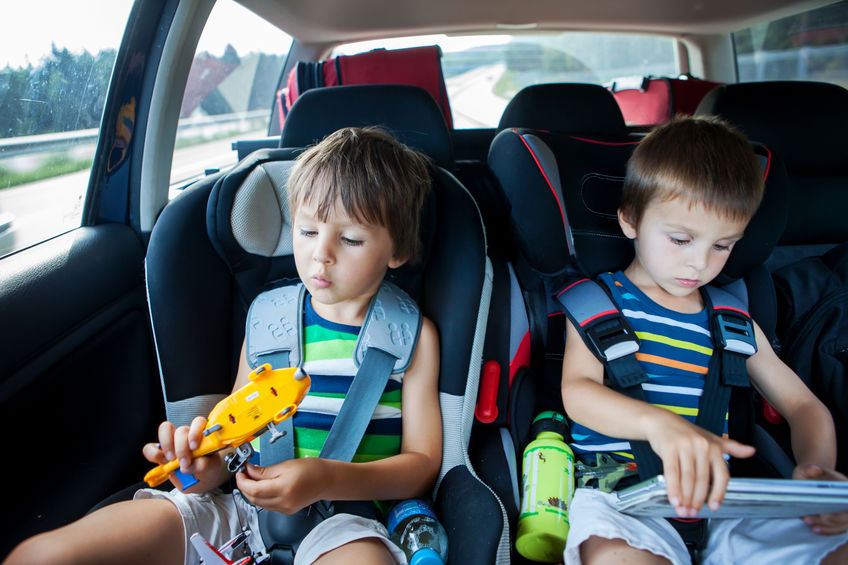Tips For Mastering
Motion Sickness
9 Tips For Keeping Car Sickness Under Control
Tips for mastering motion sickness. Bleah! We've all been there and done that. Car sickness is no fun, no matter how old you are.
If you're planning a road trip and one of your little passengers is prone to tummy trouble, the best thing to do is be prepared with ways to minimize the discomfort—and to deal with it if the worst happens.
Here are 9 tips for mastering motion sickness to help keep your kids' tummy contents where they belong.
1. Seat Motion Sickness-Prone Kids in the Back Seat
Position motion-sickness-prone kids in the middle of the back seat so their eyes are directed straight to the road.
Kids often get sick when what they're looking at (a book or the scenery whizzing by) doesn't match the motion that their bodies feel.
Motion sickness occurs when the brain receives conflicting information from the inner ears, eyes, and nerves in the joints and muscles. If they still feel motion-sick, suggest that they focus on something motionless and far away, like the horizon.
2. Tips For Mastering Motion Sickness - No Reading in the Car
Don't let kids read in the car, especially on curvy roads. There is something about the mix of printed words on a page and a winding road that don't agree with most people. To avoid nausea, sing along to the radio or listen to books on tape.
3. Open a Window at the First Sign of Car Sickness
Open a window and let a little fresh air in at the first sign of motion sickness. Fresh air does a big - and little - body prone to becoming car sick good. This could prevent a full-fledged tummy episode.
Or, stop the car as soon as possible and let your child get out and walk around, or have your child lie on his or her back for a few minutes with closed eyes.
4. Tips For Mastering Motion Sickness - Avoid Heavy Meals Before Hitting the Road
If there's a history of car sickness, keep pre-road trip meals light. This trick will go miles toward helping a nervous stomach keep its contents within.
5. Pack Gingerale and Soda Crackers for the Road
Provide cold ginger ale for sipping and crackers for nibbling. (Here's a great reason to keep a small cooler in the car.) These on-the-road tummy settlers can save the day - or night. Not to mention your car's interior.
6. Keep a Cold, Wet Cloth Handy in a Plastic Bag
If a child is feeling car sick, put a wet, cold cloth over the child's face. This cool comforter can calm her system down. And if that doesn't work, you'll just happen to have a bag handy.
7. Travel with an Ice Scraper Even if You Live in Hawaii
Pack an ice scraper (great for scooping up chunks, ick), motion-sickness bags (a.k.a. plastic trash bags), and wet wipes for quick cleanups.
8. Have a Change of Clothes
Have a change of clothes for the motion-sickness-prone child handy. If it happens, you'll be ready to remove clothes and utilize the fresh replacements.
9. Tips For Mastering Motion Sickness - Get Medication Before You Hit the Road
Finally, if your kid is likely to get car sick, ask your doctor about giving him or her a safe over-the-counter medication for kids to prevent motion sickness before the trip begins.
The over-the-counter medication meclizine (Bonine, Antivert, Dramamine) is approved for kids 2 and older and can be a useful preventive measure for short trips or mild cases of motion sickness.
Your pediatrician may also choose to prescribe medications for longer trips, or if your child repeatedly develops severe motion sickness.
One example of prescription medication is a patch containing scopolamine (Transderm-Scop) that often is effective in preventing motion sickness.
The antihistamine diphenhydramine (Benadryl), approved for kids 6 and older, may also prevent symptoms. Both medications work best if taken about an hour before traveling.
- Clean Home
- Car
- Motion Sickness Solutions












